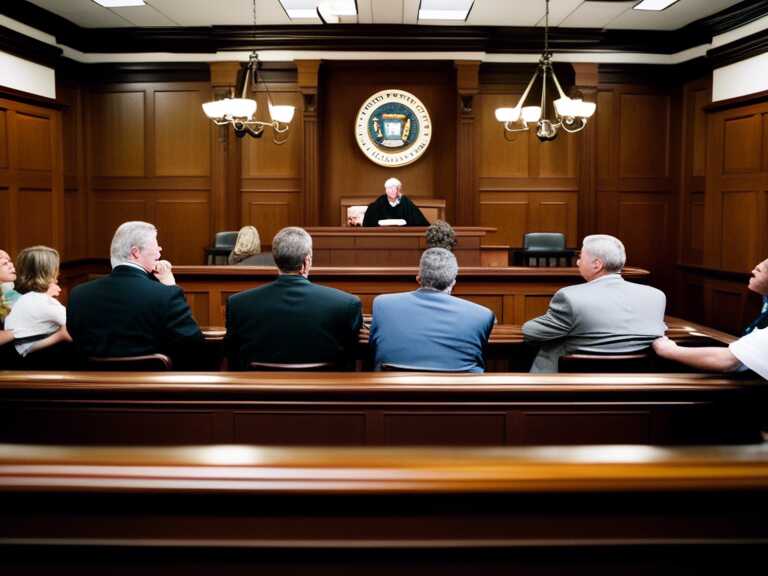
Boston Officer's Family Sues Karen Read, Bars in Wrongful Death Lawsuit After Hung Jury
The family of a Boston police officer filed a wrongful death lawsuit against Karen Read and two bars for allegedly serving her alcohol before a fatal incident.

The family of a Boston police officer has formally launched a wrongful death lawsuit against Karen Read, the Massachusetts woman whose murder trial in the officer's death ended with a hung jury in July. The civil suit, filed in Plymouth County Superior Court, is based on new developments and accusations that have come to light.
Charges against Karen Read and Bars
The lawsuit, lodged by the relatives of the late officer John O’Keefe, levels accusations not only against Read but also two bars, C.F. McCarthy’s and Waterfall Bar & Grille, for allegedly serving Read alcohol when she was already intoxicated on the night of the incident that led to O’Keefe's demise.
The civil suit alleges that Read, aged 44, plowed into O’Keefe, aged 46, with her Lexus SUV after consuming a series of drinks at the mentioned establishments on Jan. 28, 2022. The bars are accused of serving Read alcohol despite her visible intoxication, thereby contributing to the events leading to O’Keefe's tragic death.
Accusations and Legal Proceedings
The civil suit goes beyond the alleged drunken driving incident. It also paints a picture of a deteriorating relationship between Read and the victim, O’Keefe, with prosecutors previously alleging that Read mowed O’Keefe down amid this troubled relationship. The lawsuit accuses Read of leaving her boyfriend for dead outside the home of a former Boston police officer in Canton, south of Boston, on the fateful night.
While the criminal trial saw Read maintaining her innocence, her defense team posited that law enforcement officers had framed her for the killing. Despite the hung jury from the previous criminal trial, the prosecution remains steadfast in its resolve to retry the case, with a new trial scheduled for Jan. 27. This juxtaposition of civil and criminal proceedings adds layers of complexity to the legal battle surrounding this incident.
Negligence and Emotional Distress
Beyond the direct accusations against Read and the bars, the civil suit delves into the realm of negligent infliction of emotional distress. This aspect introduces a new dimension to the case, highlighting the broader implications of the alleged actions on the emotional well-being of the deceased officer's family and loved ones.
The O’Keefe family lawsuit further accuses C.F. McCarthy’s of serving Read seven drinks over a roughly 1 1/2 hour period on the night of Jan. 28, with Waterfall Bar & Grille allegedly serving Read a shot and a mixed drink shortly after. These claims, if substantiated, raise serious questions about the responsibility of licensed establishments in serving alcohol responsibly, especially when patrons exhibit apparent signs of intoxication.
Implications for Bars and Establishments
The accusations against the bars in the civil suit bring to the forefront the legal obligations and ethical responsibilities of alcohol-serving establishments. If it is proven that these establishments failed to adhere to responsible service practices, it could have serious repercussions, not just in this specific case, but also in shaping industry standards and practices across the board.
Family's Pursuit of Justice
For the family of the late officer O’Keefe, this lawsuit represents a pursuit of justice on multiple fronts. While they are seeking a measure of accountability through the civil suit, they are also anxiously awaiting the outcome of the criminal retrial, which could bring about a different form of closure and resolution to the painful chapter of their lives.
The civil suit represents a new phase in the legal battle surrounding the tragic events of January 28, 2022. The accusations, not only against Read but also against the bars involved, add layers of complexity and legal intricacy to an already multifaceted case. As the legal proceedings unfold, the pursuit of justice for the late officer O’Keefe and the exploration of legal and ethical responsibilities within the scope of alcohol service will continue to be at the forefront of this evolving narrative.
As the trial date approaches and the case gains renewed public and legal attention, it will be crucial to closely observe how the various elements of this case unfold in the courts and what implications they may have not only for the individuals involved but also for the broader legal and social discourse on responsibility, accountability, and the pursuit of justice.
Share news















